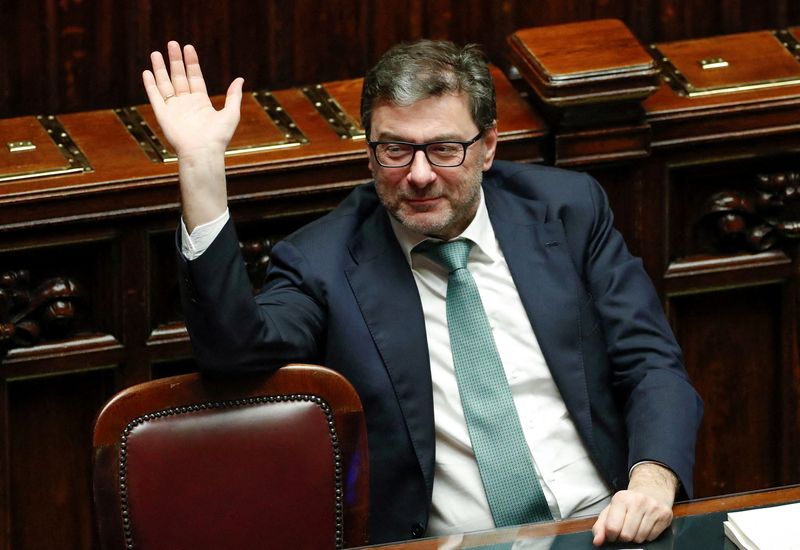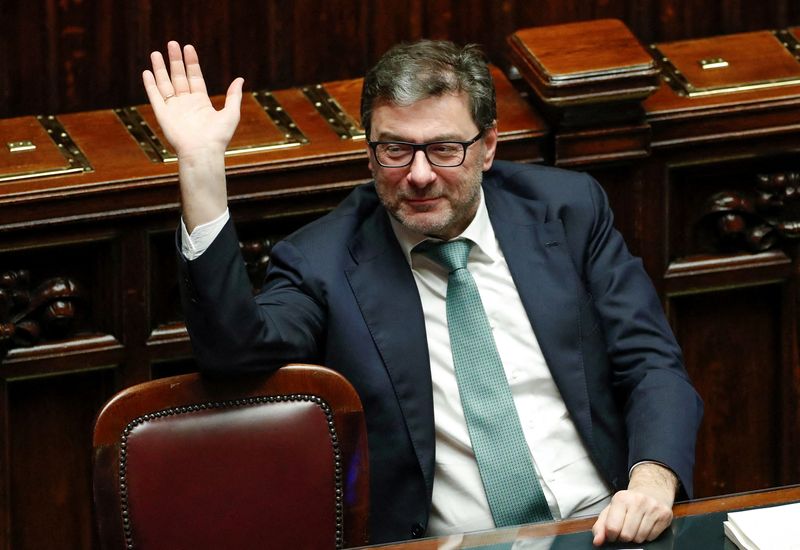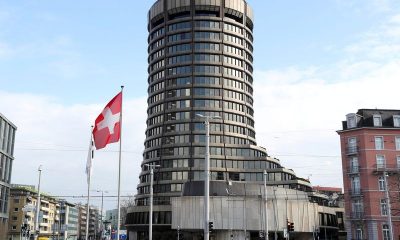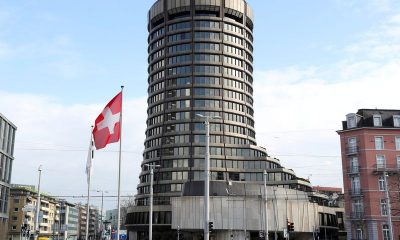Economy
Italy sticks with 1% 2023 growth target despite weak second quarter


© Reuters. FILE PHOTO: Italian Economy Minister Giancarlo Giorgetti gestures during a confidence vote over the 2023 budget at the lower house of the parliament, in Rome, Italy December 23, 2022. REUTERS/Remo Casilli/File Photo
By Giuseppe Fonte and Giancarlo Navach
CERNOBBIO, Italy (Reuters) – Itay can still achieve economic growth of 1% this year despite the fall in output reported in the second quarter, Economy Minister Giancarlo Giorgetti said on Sunday.
Italy’s gross domestic product (GDP) shrank by 0.4% in the second quarter from the first and its manufacturing sector contracted in August for a fifth consecutive month, according to data released on Friday. GDP grew 0.6% quarter-on-quarter in the first three months of this year.
“The government plans to maintain the forecasts of 1% in 2023, but inevitable external variables are radically changing the picture,” Giorgetti said, speaking at The European House-Ambrosetti economic forum.
With interest rate hikes by the European Central Bank to curb inflation dampening economic activity, Rome’s growth target of 1.5% next year is increasingly at risk, economists say.
The government will update its growth estimates and public finance targets by Sept. 27.
Giorgetti also renewed calls for new European Union budget rules to include favourable treatment for some spending, such as investments aimed at making the economy greener and financial aid to Ukraine.
Italy is preparing a difficult 2024 budget in which it will seek to reaffirm Prime Minister Giorgia Meloni’s commitment to keeping its deficit on a downward trend, leaving little leeway for stimulus.
The government in April set a budget deficit target of 4.5% of national output this year and 3.7% of GDP in 2024.
“Next year’s budget law will obey the purpose of limiting positions of advantage we can no longer afford and reward those who work and create real wealth, especially looking ahead to the main source of wealth production: children,” Giorgetti said, indicating there might be tax breaks to help families.
A key factor weighing on Italy’s state coffers is a contested energy scheme approved under Meloni’s predecessor Giuseppe Conte in 2020.
The total cost of the so-called Superbonus, offering incentives for energy saving home improvements, is now approaching 100 billion euros ($107.73 billion).
“Thinking about the Superbonus makes me sick to my stomach, it has a negative effect on public accounts, it engulfs economic policy and leaves no room for other interventions,” Giorgetti said.
($1 = 0.9282 euros)
Economy
Russian central bank says it needs months to make sure CPI falling before rate cuts -RBC


© Reuters. Russian Central Bank Governor Elvira Nabiullina attends a news conference in Moscow, Russia June 14, 2019. REUTERS/Shamil Zhumatov/File Photo
MOSCOW (Reuters) – Russia’s central bank will need two to three months to make sure that inflation is steadily declining before taking any decision on interest rate cuts, the bank’s governor Elvira Nabiullina told RBC media on Sunday.
The central bank raised its key interest rate by 100 basis points to 16% earlier in December, hiking for the fifth consecutive meeting in response to stubborn inflation, and suggested that its tightening cycle was nearly over.
Nabiullina said it was not yet clear when exactly the regulator would start cutting rates, however.
“We really need to make sure that inflation is steadily decreasing, that these are not one-off factors that can affect the rate of price growth in a particular month,” she said.
Nabiullina said the bank was taking into account a wide range of indicators but primarily those that “characterize the stability of inflation”.
“This will take two or three months or more – it depends on how much the wide range of indicators that characterize sustainable inflation declines,” she said.
The bank will next convene to set its benchmark rate on Feb. 16.
The governor also said the bank should have started monetary policy tightening earlier than in July, when it embarked on the rate-hiking cycle.
Economy
China identifies second set of projects in $140 billion spending plan


© Reuters. FILE PHOTO: Workers walk past an under-construction area with completed office towers in the background, in Shenzhen’s Qianhai new district, Guangdong province, China August 25, 2023. REUTERS/David Kirton/File Photo
SHANGHAI (Reuters) – China’s top planning body said on Saturday it had identified a second batch of public investment projects, including flood control and disaster relief programmes, under a bond issuance and investment plan announced in October to boost the economy.
With the latest tranche, China has now earmarked more than 800 billion yuan of its 1 trillion yuan ($140 billion) in additional government bond issuance in the fourth quarter, as it focuses on fiscal steps to shore up the flagging economy.
The National Development and Reform Commission (NDRC) said in a statement on Saturday it had identified 9,600 projects with planned investment of more than 560 billion yuan.
China’s economy, the world’s second largest, is struggling to regain its footing post-COVID-19 as policymakers grapple with tepid consumer demand, weak exports, falling foreign investment and a deepening real estate crisis.
The 1 trillion yuan in additional bond issuance will widen China’s 2023 budget deficit ratio to around 3.8 percent from 3 percent, the state-run Xinhua news agency has said.
“Construction of the projects will improve China’s flood control system, emergency response mechanism and disaster relief capabilities, and better protect people’s lives and property, so it is very significant,” the NDRC said.
The agency said it will coordinate with other government bodies to make sure that funds are allocated speedily for investment and that high standards of quality are maintained in project construction.
($1 = 7.1315 renminbi)
Economy
Russian central bank says it needs months to make sure CPI falling before rate cuts -RBC


© Reuters. Russian Central Bank Governor Elvira Nabiullina attends a news conference in Moscow, Russia June 14, 2019. REUTERS/Shamil Zhumatov/File Photo
MOSCOW (Reuters) – Russia’s central bank will need two to three months to make sure that inflation is steadily declining before taking any decision on interest rate cuts, the bank’s governor Elvira Nabiullina told RBC media on Sunday.
The central bank raised its key interest rate by 100 basis points to 16% earlier in December, hiking for the fifth consecutive meeting in response to stubborn inflation, and suggested that its tightening cycle was nearly over.
Nabiullina said it was not yet clear when exactly the regulator would start cutting rates, however.
“We really need to make sure that inflation is steadily decreasing, that these are not one-off factors that can affect the rate of price growth in a particular month,” she said.
Nabiullina said the bank was taking into account a wide range of indicators but primarily those that “characterize the stability of inflation”.
“This will take two or three months or more – it depends on how much the wide range of indicators that characterize sustainable inflation declines,” she said.
The bank will next convene to set its benchmark rate on Feb. 16.
The governor also said the bank should have started monetary policy tightening earlier than in July, when it embarked on the rate-hiking cycle.

 Forex3 years ago
Forex3 years agoForex Today: the dollar is gaining strength amid gloomy sentiment at the start of the Fed’s week

 Forex3 years ago
Forex3 years agoUnbiased review of Pocket Option broker

 Forex3 years ago
Forex3 years agoDollar to pound sterling exchange rate today: Pound plummeted to its lowest since 1985

 Forex3 years ago
Forex3 years agoHow is the Australian dollar doing today?

 Cryptocurrency3 years ago
Cryptocurrency3 years agoWhat happened in the crypto market – current events today

 World3 years ago
World3 years agoWhy are modern video games an art form?

 Commodities3 years ago
Commodities3 years agoCopper continues to fall in price on expectations of lower demand in China

 Economy3 years ago
Economy3 years agoCrude oil tankers double in price due to EU anti-Russian sanctions

























